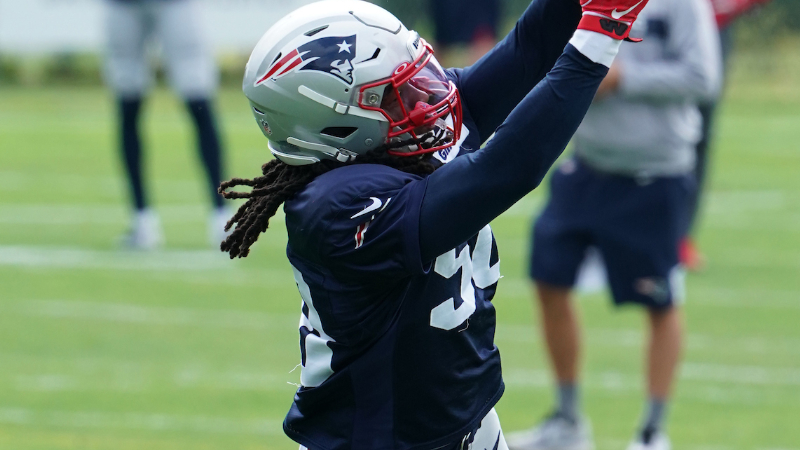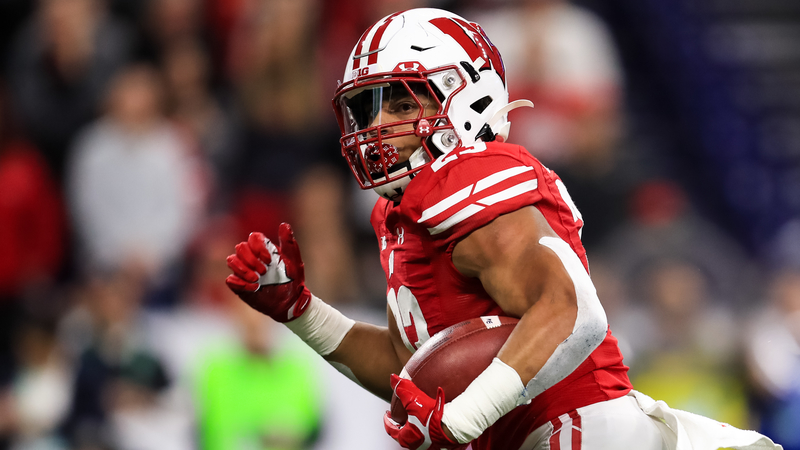Bill Belichick seemed to particularly enjoy his time on WEEI’s “Ordway, Merloni and Fauria” show Monday afternoon.
The New England Patriots head coach got going on grading players and didn’t stop for nearly 30 minutes. Belichick initially talked about the difficulty of grading certain plays without first talking to the players involved. Belichick noted his own team runs into this issue when watching opposing teams.
“You see a play on film and a receiver goes uncovered down the field, so you know it is one or two guys’ mistake, but you don’t necessarily know which guy it is, right?” Belichick said on WEEI. “And so, a lot of times you see announcers say, ‘Well Fauria should have taken him, or Belichick should have taken him’ and I am looking at the play saying, ‘Well, it could have been either guy, it just depends on what the call was and what they were doing.’ A lot of times we look at our plays and we see a mistake there and maybe we come off the field and a guy makes a tackle in the backfield and we’re like, ‘Oh my God, this guy made a mistake.’ And he tells us, ‘Well no, at the line we called something else,’ so it wasn’t him, and it actually was another guy.
“A lot of times on film we see that. We see a mistake and have to go back to see what the call was. We know somebody is wrong here, but it just depends on what the call was as to which guy is right and which guy is wrong. A lot of times we don’t know what happened until Monday. We know there’s a problem on the play, but until you actually talk to the players and say, ‘OK, what happened on this play — oh, I thought he said this, I didn’t hear it, or he said this, but I played that, whatever it is.’ You’re right, in terms of analytics you get a lot of this guy should have had him, that guy should have had him, but I know from our team there are times where we don’t know what went wrong until you really can sort the play out. There’s no way somebody else could know is the point. Sometimes what it looks like is not what it is.
“And then you often see players, defensive backs, somebody gets behind the defense for a touchdown and they pull off or don’t chase because they don’t want it to look like it was their guy, that type of thing. There are plays like that where they kind of definitely skew it, and a lot of times they are big plays. It is an interesting question and an interesting point when it comes to who is at fault, who does what and it actually is pretty frequent that that comes up.”
Belichick also stressed the need to have a sliding scale. Because the opposing team can pick up chunks of yards when everyone is technically executing their assignment.
“Sometimes you can run into conflict as a coach where you look at the play and — all right, let’s say defensively the end sort of does his job, the tackle sort of does his job, the linebacker sort of does his job, the other linebacker sort of does his job and they gain 6 yards,” Belichick said. “And you’re like, ‘Wait a minute.’ Like, everybody’s kind of doing what they’re supposed to do. There’s nobody here that’s really bad. But they just gained 6 yards. They can’t gain 6 yards and everybody does their job.
“So, then there has to be a higher standard of what’s a high grade or what’s an acceptable grade or what isn’t. And that’s a fine line. It really is. Because players can go out there and do their job and then they can do a great job of it. They can do a solid job. Or it can be, well, it’s not perfect but it’s kind of OK. And then there’s the obvious one that’s just you get beat. We all get beat. I’d say there’s a gradation in there between A, B and C let’s call it. So, maybe C’s a passing grade, but are you really going to win playing C football? B’s good. It might be good enough sometimes. A, it’s hard to get straight A’s out there. They’ve got some A players too. The grading part of it is a fine line. It really is.”
Belichick also acknowledged that some players are judged on a much smaller sample size than others. The overall grade of a wide receiver or cornerback can be swayed by one big play.
“Well, look, if you’re a corner, you might only be involved in five plays a game,” Belichick said. “It’s not like you’re playing nose tackle. Sometimes there are no opportunities. There’s some players who are involved in a lot of plays — middle linebacker or a center guard. Every single play goes through them. Then there are other players, you have defensive ends — if the ball runs one way, the other guy’s — unless they run a reverse — the other guy’s really not that involved in it. He has a responsibility to do.
“Like, how do you get a minus as a receiver? You drop the ball. That’s about it. Otherwise, if you run your 10-yard route or your 15-yard route or whatever it is, then, well, you’ve kind of done your assignment. If you drop the ball, then obviously that’s a minus.
“I’m just saying there’s a difference between — and so, really a lot of those plays, let’s call them zeroes. They’re really not grade-able plays. You want the plays — what’s the grade on the plays where the player’s actually involved in the play. So, for corners and wide receivers, their opportunities are a lot less than interior linemen, linebackers, quarterback — a running play, unless he misses the handoff or something there’s not really — he can screw the play up. I’m not saying that. But generally speaking, that play now belongs to the runner. If it’s a passing play, then that play belongs to the quarterback.”





